The Biden climate plan has important reforms, but can’t reach the stated targets with market mechanisms and carbon capture high tech. Patrick Bond gives a sweeping look at the climate crisis on theAnalysis.news with Paul Jay.
Transcript
Paul Jay
Hi, I’m Paul Jay. Welcome to theAnalysis.news, and please don’t forget there’s a donate button at the top of the website.
The Guardian headline said, “Dizzying pace of Biden’s climate action sounds death knell for era of denialism.” the Sunrise movement statement said they, quote “celebrated major climate victories as President Joe Biden announced monumental climate executive actions to begin a society-wide mobilization to stop climate change, create millions of good jobs, and roll back centuries of systemic racism.” The statement continued, “Sunrise was not only instrumental in electing President Biden but ensured he ran on the most progressive climate platform in history, now in a victory for the movement President Biden is beginning to follow through on his promises, symbolizing a turning point in this country’s climate, politics and our nation’s history.”
With a more skeptical take, the Indigenous Environmental Network says, quote, “We stand by our principles that such justice on these stolen lands cannot be achieved through market-based solutions, unproven technologies, and approaches that do not cut emissions at source. Climate justice is going beyond the status quo and truly confronting systemic inequalities and colonialism within our society.”
Food and Water Watch says, “Biden’s orders fall well short of what’s needed and must be paired with serious plans to stop our deadly addiction to fossil fuels. We need a White House that is committed to stopping all drilling and fracking, and shutting down any schemes to export fossil fuels” end quote.
The plan Biden announced is certainly a radical departure from four years of climate denial. But does it go far enough and fast enough to be effective in preventing warming from reaching 1.5 degrees Celsius above pre-industrial temperatures?
It’s encouraging that John Kerry, the new climate czar, said that 1.5 degrees was the goal and not the two degrees that is usually talked about. But will this plan actually get us there?
Now joining us to assess the Biden plan is Patrick Bond. Patrick is a political economist, a professor at the University of Western Cape School of Government in Cape Town, South Africa. He was born in Northern Ireland and pursued his doctorial studies in geography at Johns Hopkins University in Baltimore. His best-known work is Elite Transition: From Apartheid to Neoliberalism in South Africa. He also co-authored Politics of Climate Justice based on South Africa’s hosting of the 2011 UN Framework Convention on Climate Change Summit. Thanks very much for joining me, Patrick.
Patrick Bond
It’s great to be back with you Paul.
Paul Jay
So start with the positives. Certainly the biggest positive is at least now there’s a conversation that there is such a thing as a climate crisis, and that ain’t nothing compared to the last four years. But still, the real question is, is this a plan that’s going to get to where we need to be? Is it going to be effective or not? So, first of all, start with what you think is positive, if you think there are some positives in the Biden-Kerry announcements, and then let’s get into what might be the weaknesses.
Patrick Bond
Yeah, three very important positives Paul. I don’t think anyone would deny that this is massive progress from the Trump era, but more power to the activists, and to the Bernie Sanders and Alexander Ocasio Cortez team who were in workshops during the middle of 2020 to hammer out how Biden could move this far on three grounds. First, just transition language that is pro-labor politics of transitioning from carbon-intensive industries. Very, very important and often overlooked and therefore prone to generating artificial jobs versus environment divisions.
Second, certainly is an acknowledgment of environmental racism. The United States has had this dilemma that the correlation of race and neighborhood on the one hand and high pollution sites on the other is just absolutely extraordinary. Robert Bullard, an academic now in Texas, was very critical in pointing this out. And it’s taken a while for Democrats to take this on. But I see that as an explicit point in the Biden plan.
And the third is a series of micro-interventions that could be in the whole scheme of things, very important because they give activists – for example 350.org was fighting very hard against the Keystone pipeline, its northern wing from Canada to Nebraska, now nearly finished, but shut down – many of the provisions that would stop offshore oil and gas drilling on federal lands, the shift towards renewable energy funding, and electric cars. All of these are very important at the industry level and micro changes that will be critical also to give confidence to activists to take the next step.
So I do see some positives absolutely but the Indigenous Environmental Network flags first that they are market strategies, and Food and Water Watch is worried about ongoing fracking. Those are very important.
I would also take very seriously the international dimensions, especially given John Kerry’s track record in the UN process.
Paul Jay
Well, one of the first things that President Biden did on day one of his presidency was bring the United States back into the Paris accords on climate, the Paris Agreement. There has been a lot of criticism of that Paris Agreement. Rejoining it, if nothing else, symbolically is good because it ends the Trump denialism in a kind of official way. On the other hand, a lot of people thought the Paris Agreement was another, maybe not a form of outright denialism, but what some people call avoidism. So how much is this new Biden plan is avoidism, more symbolic than real, and what’s it missing?
Patrick Bond
Well, it’s terribly important that the U.S. faces the international dimensions of the problem. There’s language in there that I would worry about that securitizes climate, because the Pentagon has a stake in trying to prevent climate refugees from becoming the source of the kinds of conflicts that are in Darfur, and the Sudanese internal struggles, or in Syria where there was a drought and that led to immigration to the cities. In other words, the kind of tendencies around the world towards chaos and breakdown of states are amplified when there are climate crises.
There’s no question that the Pentagon has been aware of it. They have a big operation, Minerva, and fund academics to study where these tensions are. So there’s a sort of a securitization, and there’s, of course, a lot of tendencies in the U.S. that are xenophobic, and those have, come out of Obama’s administration. He was the “deporter in chief”. When there are climate refugees from Central America coming up, desperate because of the conditions, the terrible storms that have been hitting in Central America, then activists in the U.S. will have to amp up their internationalism.
But worst of all is that we have to remember the U.S. was a saboteur of anything positive under the Obama administration. When John Kerry was the secretary of state, and before him Hillary Clinton. Together, and especially with their main agent in the State Department, the negotiator in chief of this U.N. process from the U.S. side, Todd Stern, they were absolutely terrifying because they had all the coercion plus some carrots. And together, this was destruction of the most important aspects of any international treaty you’d want.
Can I just throw out to you something from your home country of Canada, a Montreal Protocol that would have been a good model. And that was in 1987 when even the Reagan administration and companies like General Electric and Dow that were part and parcel of chlorofluorocarbon production had to acknowledge that a major threat, the ozone hole growing because of the CFC’s in the air, had to be halted.
And the solution was a very straightforward cap. It was a ban on future CFC emissions after 1996. You know, there’s been a bit of cheating. There were some HCFC emissions from China, and those have been addressed, but that’s sort of our model of how you would want to do it with the state taking command and control.
Paul Jay
And it worked.
Patrick Bond
It did work. And the ozone hole is no longer growing and it’s under control. And this is the dilemma that OK, there are a few sources, a few companies, and refrigerators, and underarm deodorants that were giving these out, and you could replace it.
CO2 and methane, the main greenhouse gases are much more dispersed and the impact of a rapid phase-out will be more tumultuous for all economies, especially the one I’m based in, South Africa, which is the third-largest emitter when you take per person emissions, about nine tons, ranking as number 11, but also divide by GDP.
So our most carbon-addicted economies in the world are Kazakhstan, the Czech Republic, and South Africa. So for a country like this, I see the importance more acutely than I would assume others do of a good international arrangement like the Montreal Protocol. Now, the problem is that from 1997, the U.S. started to intervene in the way climate politics were being constructed, such as insisting that they privatize the air as a strategy, meaning carbon trading. That means a U.S. company that was emitting too much could buy the right to pollute from a company that wasn’t emitting as much, and could go into the markets, and these ethereal and fictional carbon emissions amounts that could be opened up as permits to pollute were then introduced.
And in 2004, 2005, they became the European Union emissions trading scheme, the largest scheme. In the U.S., the Chicago Exchange, and a couple of regional markets opened up. The Chicago Exchange, Gore backed and he was really promoting after he lost the presidential election in 2009, and he did so in the film. He won the Nobel Prize for it, and that strategy of Al Gore’s crashed completely because the financial markets crashed. And that, to me, is one of the great lessons that as we’re going into such extraordinary bubbling – kids on reddit can shake up big hedge funds and Wall Street. What they call the Buffett indicator – the measure of market capitalization – the value of the stock markets of the world.
So the GDP, the output, is at unprecedented levels. In fact South Africa’s got the highest national level in history now. So with financial bubbles now, seeing carbon credits become one of the most important speculative items. That’s why the U.S., when it introduced in 1997 with the promise that if you put in carbon markets, we, the U.S. will sign on. And of course, the U.S. never did, it never signed on to Kyoto.
And then the next part of this story, as quickly as Copenhagen 2009, and Barack Obama barged into a room. How did he know where to go? Because the NSA was bugging his negotiating opponents. Who were they? Well, the premier of China, Wen Jiabao, the prime minister of India, Manmohan Singh, Lula, the president of Brazil, and South Africa’s President, Zuma, and he barged in.
He found these four guys there called the BASIC group – Brazil, South Africa, India, China. He found them, and with Hillary Clinton and Todd Stern said, here’s the deal. It’s just a one page Copenhagen Accord, and essentially it’s hey you pollute, I pollute, it’s a deal. Right. And this was the deal that, as Bill McKibben (350.org founder) said, “blew up the United Nations”. It was the “League of Polluters, and [would-be] Super-Polluters.”
And it was them saying we don’t want to have any binding constraints. Kyoto had some binding and we don’t want any penalties. We don’t want any real ambitions to bring the emissions down to the level. And I think that’s when we entered this decade. Barack Obama had just the day before won the Nobel Peace Prize. Right. Warrior that he was, and then sabotaging anything serious in the UNFCCC. Thank goodness for WikiLeaks and for Ed Snowden’s releases about how the NSA works.
We know down to the details both the State Department cables – Chelsea Manning’s leaks – of how in 2009 and 2010 bullying and bribery were the U.S. State Department’s modus operandi. And then we know from the emails of Hillary Clinton that Todd Stern was emailing how he was doing and trying to destroy the foundations of equity. He said “if equity’s in, we’re out”. He told that to the negotiators here in South Africa, in Durban in 2011. I think you get that tradition of U.S. imperialism, climate imperialism, and then a few, let me call them climate sub-imperialists –the sort of second layer like South Africa – join in and then you’ve got a Paris climate agreement with such fatal flaws. I think it does more harm than good to be promoting that strategy at this stage.
Paul Jay
The critique of many people and including interviews I did on theAnalysis.news prior to Biden’s victory of Biden’s climate plan.
Looking on his website, there was an almost total reliance on carbon capture, very little in fact almost nothing about phasing out fossil fuels. Assuming that these targets that now seem even more, what’s the word, bold to hit the 1.5 instead of the 2 – which I’m happy to see – but are they still primarily relying on what will be carbon capture technology, which is, as I understand it, still quite unproven. And that they still seem light on going to end fossil fuel subsidies, but they don’t seem to be doing what you were talking about in the Montreal Accord, where you simply pick a date and you actually legislate fossil fuels out of use.
Patrick Bond
Exactly. Because these are essentially corporate neoliberals aren’t they? I mean, the Biden tradition, he comes from Delaware, the main tax haven in the U.S. He’s again and again promoted the interests of the financial sector. The bankruptcy bill being a good example. I think what it means, though, Paul, is not simply the Dr. Strangelove technology that is sort of untried, untested, and quite dangerous, trying to suck carbon underground. Hopefully it stays there. But we know that if it erupts, big clouds of carbon dioxide can be can be mass killers.
We’ve seen this in places like Cameroon (Lake Nyos CO2 eruption, 1986), but the main thing is they want to do net-zero to try to pretend that these accounting tricks can allow them to continue emitting in different ways. Hopefully much less on the energy side but, in all sorts of other areas there are emissions coming from the U.S. at these record levels. And then buy the right to pollute from other places. So these offsets and carbon trades are going to be essential.
And indeed, in Biden’s plan, he’s explicitly arguing for market-based solutions in the Amazon. Now we know there’s a maniac Jair Bolsonaro running Brazil, and he’s letting his mates, who do soy and cattle and timber and mining wreck the Amazon. Forest fires every July, August, September, November, October that are out of control. So anything we can do to try to get more pressure on Bolsonaro not to allow this in his remaining years in office is vital.
But we already know very much that the Amazon purchases of land and attempts to corral areas – there’s the “reducing emissions from deforestation and forest degradation” plan (REDD+), there are all manner of clean development mechanism strategies that have been used in the forest, the tropical forest, all over the world. And the Amazon has been acutely affected by the attempt, especially by the California investors who are part of the California Air Resources Board to purchase these REDD credits.
And that means they can keep polluting in California and pretend that they’re protecting land in Central American and South American jungles. But I would encourage your viewers to go to Amazon Watch website (https://amazonwatch.org) because that’s been one of the key sites of the counter struggle where hundreds of scientists have said that this is just not working.
It’s immoral. The way in which you’re doing the protection of the Amazon is counterproductive because you’re kicking out some of the forest people, indigenous people, who really can manage the Amazon. This is just one example. But as I say, when you rely on bankers to try to fix the problem of our century, the climate crisis, and we know from what’s going on now in the financial world, they’re corrupt and greedy and self-interested and short term-ist and are totally incapable of even managing their own financial self-regulation.
And they let all manner of chaotic new exotic devices come in. I would therefore worry enormously that this orientation of Biden, Kerry and the people around him towards privatizing. Selling it to a higher bidder and putting it into some bank created market is going to be as successful as it was with the Chicago Climate Exchange, which crashed in 2010.
Paul Jay
Well what is the cap and trade stuff, and creating the exchange, which outside of perhaps I’ve been told some success in California, has been mostly smoke and mirrors everywhere else? If that’s correct. But they’re also talking about carbon tax and pricing in the real cost of carbon. There’s a lot of language, it seems, in the Biden-Kerry plan so far without a lot of detail that does seem to strike a lot of the right notes if they’re really going to do it. But I’ve never quite understood whether carbon taxation, pricing in the real cost of carbon, as opposed to regulating fossil fuel out of existence – is there something to carbon pricing? Is there any evidence that it can be effective?
Patrick Bond
Yeah, I mean, their is always danger when you take nature and you apply market principles. Sometimes it’s incredibly important to do so as to calculate the ecological debt that is owed by the polluters. So you kind of say, well, the present value of this ecological damage, this extraction of resource base, would be so and so. And then you think about what kind of compensation – this is done all the time. And the question is whether we can make public policy that is genuinely conscious of ecological damage.
And this strategy of a neoliberal and a typical U.S. neoliberal is very bounded by national concerns. And so if you go to the carbon tax you’ll see they have no conception of the tax that should be given to the victims of U.S.-created climate chaos through climate debt payment. That would be one of the ways you’d say, OK, without it being a market, but we can still say you’ve done damage, and the polluter should pay a fine.
But that’s very different than saying we’re going to tax you, you’re going to pay a fee, and then you keep doing what you’re doing. And that’s the dilemma, the taxation system is going to be very complicated because everyone reacts to attacks in different ways.
The economists have a term, elasticity, the way in which higher price because of a tax may affect your consumption. And if you look at the two most spectacular carbon tax figures, we should learn. One was in France 2018. This movement came up as a result of the carbon tax and the pressure that rural people who are dependent on petrol gas from making long-distance kinds of trips. And then in Ecuador very rapidly, the IMF was pushing a quite conservative government that had Lenin Moreno that had once been under the Rafael Correa pink tide, but then moved very quickly to the right.
And then as they put on the tax that created in 2019 mass protests, the IMF riots, and nearly led to Lenin Moreno being overthrown. He had to actually run away to Guayaquil, from Quito, the capital, to save his government. And those are the kinds of mistakes that suggest if you’re not doing carbon tax applications with the majority of the population, in a really proactive and participatory way, where you’re explaining to the society the way a Che Guevara or Fidel Castro would have done – really saying these are the problems we face, we’re going to have to take some steps, make some sacrifices. And I think the carbon taxation has to be applied in such a progressive way that the working class who are by virtue of capitalism stuck out in the periphery of cities. So they’re going to pay higher commuting bills anyway, especially if they’re having these old, less efficient cars. And I’d like to see a debate about whether carbon taxation as an international principle might be effective as well, because the goods that we are importing, the laptop I’m talking to you on right now is a product of processes that create emissions and those are not properly calculated.
And in a drive towards more localization and more self-reliance and more interconnected local economies that are not so subject to whims of the world division of labor or, the U.S. currency fluctuations, all the things that make our trading system so chaotic, a carbon tax applied to trade. And the phrase for this, by the way, is a border adjustment tax. If you come over my border but you’ve carried embedded carbon, well, you should be paying some price for that.
Now, the one time we would have really loved a carbon tax had the world been serious would have been against Donald Trump on June 1, 2017, when he pulled out of Paris. You know, some sanctions. I think people as diverse as Naomi Klein and Joe Stiglitz and even Nicolas Sarkozy, the former conservative French president, all said, yeah, that guy must be punished for the U.S. pulling out, and that for U.S. goods are cheaper than they should be otherwise.
And you see carbon pricing is a political approach to trying to make this climate struggle one that is as wide-ranging and as capable of grappling with those power players. There may be something to that, too. That’s not where Biden’s going to go.
Paul Jay
But the problem with carbon pricing seems to me especially a global agreement on carbon pricing, but even just domestic ones. And by the way, I do need to correct something. When you said I’m Canadian, I’m only Canadian when I have to critique Canada, but I’m a dual citizen. So when it’s time for me to trash the United States, I put on my American passport. When it’s time to trash Canada, then I take my Canadian position.
Patrick Bond
Well, more power to you.
Paul Jay
But that being said, you know, maybe 50 years ago, like when this flag was first raised about climate and global warming, like in the late 60s and early 1970s, is when this conversation actually began. Maybe you had time to work out agreements on carbon pricing, but it’s beyond any credulity that it’s going to be done in a necessary time frame. Never forget internationally. Even domestically, I don’t see anything other than regulatory authority. How do you even entertain the idea of negotiating carbon taxes?
Patrick Bond
You know, everything you’ve just said is absolutely critical because you’re describing a difference between a marginal strategy, at the margins, in other words, bit by bit. And marginalism, that’s the underlying ideological apparatus of markets. That they move and they shift according to changes in price – changes in supply and demand – these are the ideological fixations of U.S. economists who’ve been so important in State Department strategy. Do things at the margin just bit by bit. It’s absolutely right that we need a real war effort, as is often commented, like World War Two, like the U.S. made dramatic shifts in, say, Detroit, no more cars. Let’s build some tanks. We’ve got to defeat Nazism. And it’s that spirit, obviously, that’s needed.
The marginal strategies of carbon pricing gets to several of the other major things that Paris leaves out Paul. The single biggest emitter in the world, is the U.S. Pentagon, with all of its bases and its military activity and they’re left out. Another major emitter left out of Paris is the shipping industry, which does all the transfer containers and the airline industry, not just passengers, but air cargo.
Those are all left out. The most striking point, though, when we talk about the market orientation of the State Department comes up against its own internal contradiction, and that is when the normal ideology of a neoliberal is to let market solutions correct for market problems. They call it internalizing an externality, something external to the market should be priced in. But it’s not the price of cheap labor in China because there’s no trade unions that have an independent character. We don’t price that.
And that’s an externality. So you would normally try to adjust and internalize.
Now, the dilemma is when you want to do that, you would maybe have a tool– polluter pays – in which you identify how much damage has been done. And there should be some reparations for that damage. And that’s where a new climate denialism, the climate debt denialism, and that’s what Todd Stern at the U.S. State Department, backed by Kerry and before him, Clinton.
She, by the way, had a little scam, which I see is being repeated about spending U.S. Money. We’re going to have a hundred billion dollars a year. Right. She was like shaking hands with Donald Trump. You know, you’ve got to count your fingers afterwards. And what Hillary Clinton promised at the Copenhagen summit, which was 100 billion a year, is now a trivial fraction of that. There’s a bit of gaming about climate finance through private markets that might qualify. But the main fund, the Green Climate Fund, which is meant to give grants to support adaptation, resilience, lower of the emissions in poor countries, that’s running around $10 or $11 billion.
And, you know, we expected $100 billion a year starting last year, 2020. But for the polluter pays ideology, the most critical internal contradiction is Todd Stern negotiated at the Paris climate agreement that it would not be acceptable to have a climate debt or liabilities acknowledge. There’s even a special rider, a special document attached saying if we recognize that some of your countries have a loss in damage, by the way, much of which in the south is not insured while in the north, about 60 percent of last year’s damage was insured.
In the south, it was four percent. And what that means is that Todd Stern, John Kerry, and Barack Obama with Joe Biden as vice president, did the most unjust thing you can imagine, which is we, the U.S., do most of the historic polluting, and we do not pay for that pollution.
We deny our climate debt. Trump denied climate change. Biden’s people have been denying climate debt. And I hope as reparations continue to be demanded righteously and justifiably by African Americans and Black Lives Matter. I think a climate debt that the U.S. should pay to the people, say, in this region where I am, in southern Africa, where in Mozambique we just had yet another massive cyclone, 160 kilometers per hour winds come in and do massive damage, killing more than a dozen.
Two years ago more than 1000 were killed. And I think the damage, the repayments of the physical damage, the priceless lives aside, was only about a quarter of that damage. And even in South Africa, where we have these climate debts, only about 10 percent gets compensated by various kinds of relief. So I hope that becomes one of the central questions, because the United States, and especially a Biden administration with lots of rhetoric about justice in this document, really does need to confront the historic injustice that the U.S. has visited upon us all.
Paul Jay
Well, of course, I agree with you, but it ain’t going to happen. It certainly isn’t going to happen in any timeframe that’s meaningful in terms of the window there is for actually preventing us hitting the two degrees and then three. My understanding from the scientists I’ve talked to, once you’ve hit two, you get an effect called runaway.Once you’ve hit two, you’re on your way to three. And of course, then four and far away and much of the planet becomes unlivable.
So while I think it’s correct to raise these issues of climate debt, I don’t think it actually should be the focus at the moment here, because right now, the real politics of this is, are there sections of the elites who are going to actually get the existential threat? And instead of just trying to financialize the problem and make money out of the problem, treat it like the Montreal Accord, as you started off this interview saying, and absolutely take a hard line on regulating fossil fuels out of existence and sustainable energy into existence with a massive investment.
And the way I frame it that way is because right now, as much as Sunrise and the other environmental activist groups have played certainly a positive role – they’ve helped influence and make this more of an issue for the Biden administration – the reality of American politics is that movement is really quite weak. You know, the number of members of Congress who really would support the kind of effective regulation of fossil fuels out of existence.
You can probably count on two hands, maybe three hands if you had a third hand. As a movement, as people who really care about this, and I would say it’s in various parts of the political spectrum, but mostly on the left, I think we have to get realistic that there has to be sections of the elites who don’t just play smoke and mirrors with us and are pressured in various ways by a movement to actually support effective action because what do we have, nine years, 10 years if the scientists are saying it’s a decade?
If we’re going to not hit 1.5, we’re not even close to that kind of politics in North America and I don’t see that close to it in China. Europe talks a good game. Greta Thunburg is very good at pointing out that Europe talks a good game and doesn’t execute. The moment is so critical, we better get laser focused on seeing if it’s actually possible to get effective action here.
Patrick Bond
Well, I agree with speed, but good politics with speed is critical. And I think we are not at cross purposes in saying one critical aspect is to identify those imperialist and neoliberal aspects of climate action, a dominant theme in climate policy, and question them in order to change the balance of forces.
So exactly this terrible struggle scene that you’re describing with some youth-led Sunrise movement, labor slowly coming into focus, groups like 350.org and many of the NGOs doing good work, very, very critical groups in a climate justice alliance all over especially the indigenous peoples the people of color in the U.S. I look to them really for hopefully growing in strength. Now, the question is, how do we then weaken the imperial forces? And you’re right, there’s no elites out there right now ready to accept a sort of Montreal Protocol scale of banning greenhouse gases. That’s true.
Paul Jay
I think there might be some, but they’re also marginalized. Yeah. Or they are playing as Elon Musk of South Africa, now the richest man in the world, playing all sorts of other games with technology. But it does seem to me that what Greta Thunberg did at the World Economic Forum last week was very you know, it was very appropriate. She made really two critical points in her short intervention. One is that there are accounting gimmicks and therefore we must never relax guard when we hear about commitments to net zero, because you’ve got to look, the devil in those details, as we’ve begun to do here.
I mean, we haven’t seen a climate politics that is so technologically focused that it would solve the problem. The idea you could sequester carbon under coal fired power plants or have a bionic plant to sequester carbon from the air. These are still way away in the future, if ever. And they’re dangerous as well. But the second point she made was ultimately continuing her tradition of delegitimization of these elites. And when she goes to Davos or she was in New York in September 2019, she was looking at the core of the problem right there.
And she was very explicit that the youth are going to be claiming their rights to a decent life in their future generations. And those of us and the older generations who failed so far really have to stand back and let a new generation come through. This is a delegitimization of older elites. So it’s done on an age-basis, but it’s absolutely appropriate to say, and I think the North-South dimension, the more we see these movements coming up from the south, I am often in contact with groups here in South Africa.
But another group, the Pan African Climate Justice Alliance, they were in Copenhagen formidable and delegitimizing the deal. It was going down then, working with the then ambassador Lumumba Di-Aping, one of the great voices from Africa.
So I think the North-South dimension and that’s again, something that as African-Americans and BLM and other people of conscience. Remember another struggle that seemed for so long as impossible, the anti-apartheid struggle, in which so many people in the U.S. said, well, maybe we should take some sacrifices and endure some pain so we can get some gain. That we’ll take our money out of these profitable companies doing business in South Africa, the biggest in the world at the time, Ford, GM and IBM.
And we’ll take a divestment hit to our own investments so we can try to end this outrageous crime against humanity. So I think those things come up from time to time. And international solidarity is something that the United States can continue to give, but also can benefit from if we were to somehow generate the pressure outside the U.S. to put climate sanctions on the U.S., obviously in conjunction with activists in the U.S. And I really hope that Donald Trump would.
Paul Jay
We’ll be at four degrees before Europe or any of these people put sanctions on the United States. Five degrees. There won’t be an earth left.
I think we can’t have illusions about what’s possible here. I’m in no way suggesting taking the foot off the gas of exposing the fraud of like net zero. And I mean, I’ve done several pieces about that.
We’ll do more. The whole terminology of net zero, it’s implicit that there’s going to be some magical carbon capture technology. No, I think we must continue, as you say, to delegitimatize the greenwashing, phony solutions. The Biden plan and I guess until we see more detail about what this new infrastructure thing is going to really be looking like, how much are they really going to put into new sustainable energy, and how much of that’s going to just be financialized to make money for Wall Street? We won’t know yet. It does at least talk about regenerative agriculture, which seems to be one of the things in a toolkit that might actually help, which is a natural, healthy way to transform agriculture so more carbon is captured in the soil.
There’s mention of that in the Biden plan. Is there going to be a massive investment? Are they going to either bribe or force agribusiness to transform into that? There’s some argument that it’s actually more profitable to do agriculture that way.
I mean, I am obviously predisposed not to market mechanisms, not because of some purity. I couldn’t care less honestly if BlackRock, the biggest asset manager in the world, could take it’s assets from the current – I think they’re at eight trillion now. If they could get to 100 trillion and actually fix the climate crisis, let them have their bloody 100 trillion. The reason I’m against market mechanisms is because they don’t work. There’s no evidence of that. If market mechanisms worked, we’d already be on the way to a solution. I mean, it’s too obvious.
Is there any break in the thinking of the financial sector as represented by the Biden administration? Are they actually starting to get that this isn’t just another opportunity to make money? That they really are threatened? And I don’t know the answer.
I read Larry Fink – who is the head of BlackRock – has made some speeches on the existential threat of climate. And a lot of his language sounds great. But when you actually dig in to what he was going to do, it’s so far smoke and mirrors. They’re going to not invest in coal. Any company that makes more than 25 percent of its revenue from coal, they won’t use there investments where they invest in whole index funds, which they don’t get to pick and choose stocks, and then there’s others where they pick and choose. So they won’t invest in any company whose revenue is more than 25 percent from coal.
They failed to tell us that one of the companies that they invest in is a very diversified company. So even though it’s the second largest coal producer in the United States, 25 percent of its revenues are not from coal. So BlackRock can keep investing in them. So there’s so much B.S. going on, which we need to expose.
But I’m convinced if we can’t find ways to get at least some of the elites seriously on board because they get an existential threat to their own profit making.
The people’s movement, I don’t see it in 10 years, there’s going to be a force, especially in the United States, to transform things.
Patrick Bond
Nobody saw the Arab Spring, the North African uprisings, even weeks before in Tunisia and Egypt. And nobody saw the struggles that emerged that year and all over the world. I mean, this is where even the Center for Strategic and International Studies, a conservative Washington think tank, termed the age of mass protests. So these movements rise and they’ve overthrown governments again and again. And the question is whether at some point, if indeed it’s still the case that there’s no elite willing to make the market-based or even some sacrificial based strategic turn.
Paul Jay
Can I just say I’m not suggesting the elites are going to come up with some market-based solution. I don’t think there really is a market-based solution.
Your Montreal Accord, enough of the elites saw the necessity for the Montreal Accord to regulate these things out of existence. No, I don’t believe. Every market-based solution, I think on the whole so far we’ve seen is smoke and mirrors.
Patrick Bond
And as I said, I think the critical problem about putting environmental assets into markets is that they become speculative commodities. They truly are ethereal. Right? They’re as real as a Bitcoin. So they will just blow very high and then they’ll crash very, very deep, this is what we saw already.
Paul Jay
And can I add one little more thing to my argument. I don’t think there’s any possibility of sections of the elites getting serious about climate unless there is the kind of mass movement you’re talking about. Millions of people willing to be in the streets and vote in this way. Then I don’t think it is possible.
Well, that’s right and the dilemma then is where you’ve got a division of labor in the early stages of this movement. You’ve got sort of big eight environmental NGOs in Washington. And, you know, you kind of say, well, they’re going to be tight with Biden with one or two exceptions. You know, Greenpeace is usually out on the left and being very critical. But it does seem to me that’s where the division of labor between the tree shakers and the jam makers as Jesse Jackson always loved to explain, has to be much more explicit.
The tree shakers have often used climate justice principles, analysis strategies, tactics and alliances, including, you know, alliances with the more advanced wing of the labor movement and people of color who are very concerned with the implications in communities. You know, New Orleans was very racially hit by Katrina’s effect in 2005, particularly drawn to areas where low income people live, black people lived.
And these are the kinds of I think, politics of a left that will be continually putting pressure. What I would worry about is the same concern we had about Barack Obama coming to power in early 2009, that he got such a free pass, a honeymoon, that he could bail out Wall Street and allow the banks to chop African-American homeowners. And so that’s where the jam makers inside the system or the NGOs that have some access at the moment, whatever that may consist of, have got to encourage the critical voices outside.
Otherwise, they’re just going to be sucked right into, you know, elite status quo, and that will include, I think, the international. That’s why when in Glasgow, if it happens in November or May, it may be delayed because of Covid-19 not yet being under control. The Glasgow COP26 is one that I know the British progressives are really mobilizing to have as critical an outside standpoint as possible. And we’ve had in the past COP’s (Conferences of the Parties) or conferences of the Polluter’s, many of you know, interesting tactical discussions.
Do you block the hotels? Like in, say, Washington, D.C. in 2000, to try to stop delegates from going in or as one year Michael Hart suggested, maybe you should bring them in and make sure they don’t leave until a deal is done. You know, something to really dramatize. And I think we might be right for that in the short term in terms of whether the Glasgow 26 might be a really important site of struggle where tree shakers will be shaking extra hard and jam makers will take full advantage.
Paul Jay
And I think right in this current political moment. There has to be in the United States a real demand that bipartisanship is essentially to compromise with climate denier. That this is a national emergency and there is no place for bipartisanship. The Republicans should be treated as a criminal organization. And as much as possible, the Biden administration should rule as if there are no Republicans in the Senate.
And hopefully if they did that both on economic justice issues and climate issues, we won’t see a repeat of 2010 where the Democrats handed stuff over to the Republicans in the name of bipartisanship. They wound up with nothing and they lost the Senate, and it could all be happening again.
Patrick Bond
Oh, it’s true that the $2000 check promised in Georgia is now $1400, and it won’t be as immediate as promised to be in March. And we’re already seeing the signs of futility of moving to the center from Biden. Maybe he’ll learn something and he’ll be losing popularity as that happens. Isn’t it a tricky dilemma, though, because just the way you put it, the most criminal gang in world history as Noam Chomsky describes the Republican Party. On the one hand very clearly identifies the elites who have blocked and make it impossible for the U.S. to sign the Kyoto Protocol or really do anything useful, because if you turn it into a treaty, it doesn’t get through a U.S. Senate that’s full of climate deniers on the one hand.
But on the other hand, you’ve got this extraordinary base of climate denialism that is influenced by a conspiracy theory that suggests management of this massive crisis is part and parcel of a satanic cult or one world government.
You know, the way that the far-right has used climate as part of its armoury of why we don’t like anything to do with a progressive agenda, because climate is a fiction in their view which then gives the excuse to change the economy drastically. And that’s where the just transition, that’s where the working class in the U.S., here in South Africa, is really needing to be much more engaged and much more visionary about how an eco-socialist transition could work in the interests of workers.
And I don’t think there’s any other way to put it. You may see the United States labor movement very tentatively moving in this direction, but ultimately the forces of capital and the power of profit will work against exactly that transition.
And so it will be I think, this very interesting dilemma. How did the U.S. progressive forces identify their enemies in the Republican Party, but try to also dampen the craziness that occurs even among working class people who buy into QAnon or other climate denialist conspiracies in the base. I think the only way to do that is really in action. It’s an activist campaigning and it’s often to do with the way workers and communities can find unity. South Africa has been a place where that has been difficult.
We’ve even had an assassination of a community leader (Fikile Ntshangase, leading member of Mfolozi Community Environmental Justice Organisation) just three months ago because she was so good at fighting a [Somkhele] coal mine. And people associated with the mine, with the labor movement there, who supported the coal mining, went and shot her at Hluhluwe-iMfolozi.
She stands as a sort of symbol of how we failed to find that just transition to unite poor and working people, women leaders, especially in these communities. I hope that’s the next stage of our movement building. And it has to be fast, as you say.
Paul Jay
And I think what needs to be done if there’s any political will to do it, is, number one, the Biden administration as part of this plan has to come out and clearly say every worker working in a carbon industry now is going to be guaranteed an income at the same level as they transition to other kinds of jobs.
It’s not enough to say they’re going to have jobs in the sustainable energy sector because it doesn’t pay as much as what they’re making now. They have to be guaranteed the level of wages instead of the Fed spending trillions of dollars to juice the stock market. It would be a pittance of that money to guarantee a level for carbon workers, fossil fuel workers to maintain their current income level.
Bob Pollin did some math on Pennsylvania. What it would actually take to guarantee Pennsylvania gas workers and people working in that sector. It’s a pittance compared to what they’ve been doing to subsidize asset protection.
Then the second thing is there was once a civil war in the United States to settle some very big issues. And there may be need to be an element of a civil war here, because there are sections of the society that are never going to be persuaded about anything.
I think they are a real minority, but you can’t have a politics of persuading a 20 percent that have become completely fanatical and try to water down the policies to somehow not antagonize that 20 percent that are fanatical.
So what you’re saying, I’m just agreeing with a real just transition policies that are really… I said in another interview, if Biden doesn’t get accused by the Republicans of being an autocrat, the way FDR was accused of being an autocrat, then he ain’t doing what’s needs to be done.
Patrick Bond
Yes, and likewise that if activists aren’t continuing to put pressure. You know, not patting him on the back so much as they have in the last couple of weeks, then he won’t move. And, you know, I take my faith from something that’s quite similar to the paradox in which you do find climate denialists at the bases of the poor and working class masses in a country like the U.S. And we found that in this country 20 years ago on the struggle to get medicines for AIDS.
So about seven million people living with HIV needed these medicines. Now, there was a Donald Trump type at the presidency, Thabo Mbeki, who was an AIDS denialist, and he had to be shifted out of the way eventually. That was done internal to his party.
But the critical thing after a heroic young activists Gugu Dlamini, was killed in an attack by people who were concerned that when she was giving AIDS information, she was somehow part and parcel of a big pharma conspiracy. It was a similar sort of QAnonn type of madness that was going on in this particular place, KwaMancinza. And what Gugu Dlamini lost her life for was simple AIDS education and it motivated a treatment action campaign.
And what they found was part and parcel of failing to grapple with how to address being HIV positive for so many people was that there was no hope. So if they could find a way to get medicines to people for free through the public health service instead of as existed at the time, the $10,000 per year price tag for the cocktail that antiretroviral medicines represented, that incredible class access problem was resolved only through struggle. And it involved, ironically, 20 years ago this year, the World Trade Organization, under pressure from all over the world, finally acknowledging that there needed to be a waiver on intellectual property so that generic versions of this medicine could be made.
Now, it was at the time, I was writing, I’m embarrassed, that it would be impossible to achieve these amazing ambitions – to get rid of intellectual property from Big Pharma when the U.S. government was behind it and your own government was an AIDS denialist and the World Trade Organization had a whole trade related intellectual property system designed to take royalties and surpluses out of places exactly for that. So nevertheless, the balance of forces were shifted, consciousness was raised, campaigns were waged.
And I say all this because on Thursday, February 4, the same debate comes back to the World Trade Organization, the same venue, the trade related Intellectual Property System Council. And in this case, it’s South Africa, with India, Kenya and Swaziland fighting against the U.S, against Canada, against Europe, against Japan, against Brazil. We’re not sure about China and Russia, which way. And it’s, again, this heroic moment where activists say we need to decomodify this lifesaving vaccine for Covid and the treatment and we need to make sure we spread it around the world.
Because if somebody has Covid, as the U.N. secretary general said the other day, there’s a danger everyone will continue to get it in wave after wave, variant after variant.
And I think that’s the sort of heroic moment that will also launch us into more visionary thinking. Covid-19 did that, didn’t it? It did alert people that major changes in their lifestyles could happen. For most people, it was negative. It was a period where carbon emissions briefly went down. But, you know, lifestyles were thrown asunder because for the most part, certainly, I can say South Africa, the states were not equipped to make up the difference.
And I think nevertheless, it’s one of those moments with Covid-19 that forces us to be much more visionary in this country, to hopefully get a national health insurance, maybe even a Medicare for all in the U.S. comes logically from the crisis. And the climate crisis is not far behind. If we do our work, which is to think big about the kind of problems and to be inspired by the solutions such as getting AIDS, I should just add the solution there was so powerful that at the time life expectancy was down to 52, today at 65, purely because of those seven million people not getting the free AIDS medicines when they need them.
Paul Jay
Thanks very much for joining us, Patrick. This is just the beginning of our conversation. Let’s do it again in a few weeks.
Patrick Bond
Good. Thank you.
And thank you for joining us on theAnalysis.news. And please again, don’t forget the donate button at the top of the Web page.
Podcast: Play in new window | Download | Embed
Subscribe Apple Podcasts | Spotify | Android | iHeartRadio | Blubrry | TuneIn | Deezer | RSS
Never miss another story
Subscribe to theAnalysis.news – Newsletter


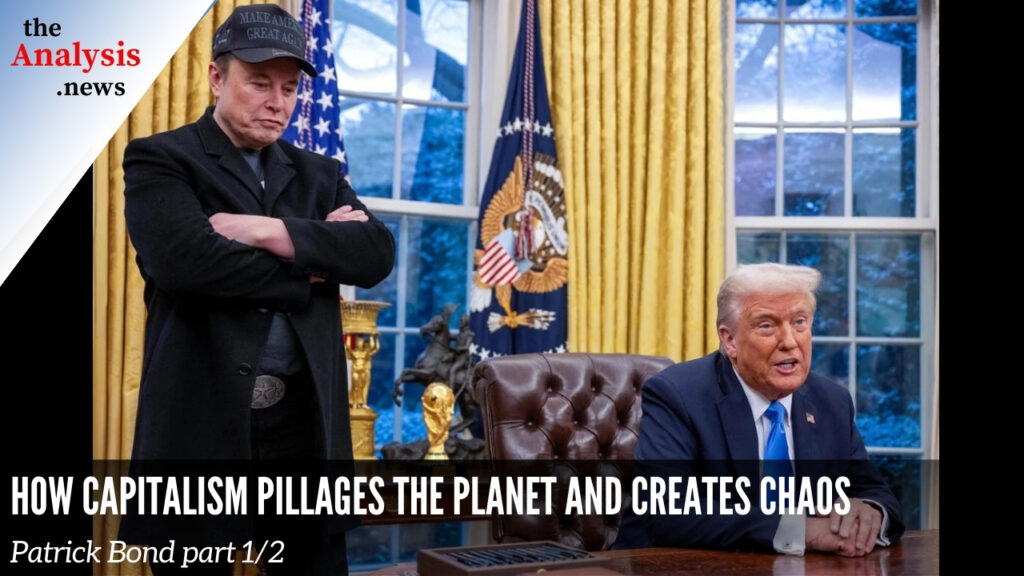


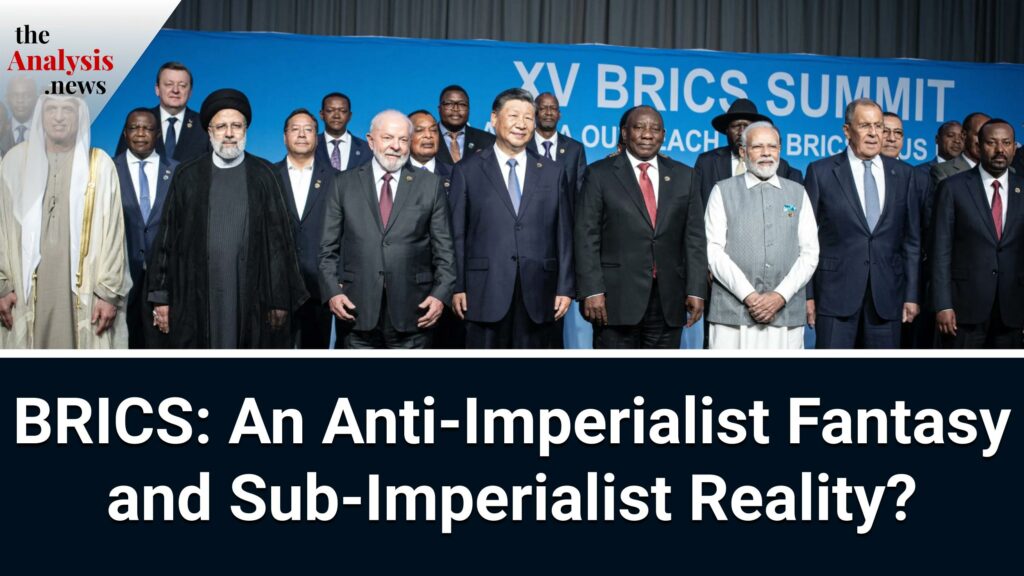


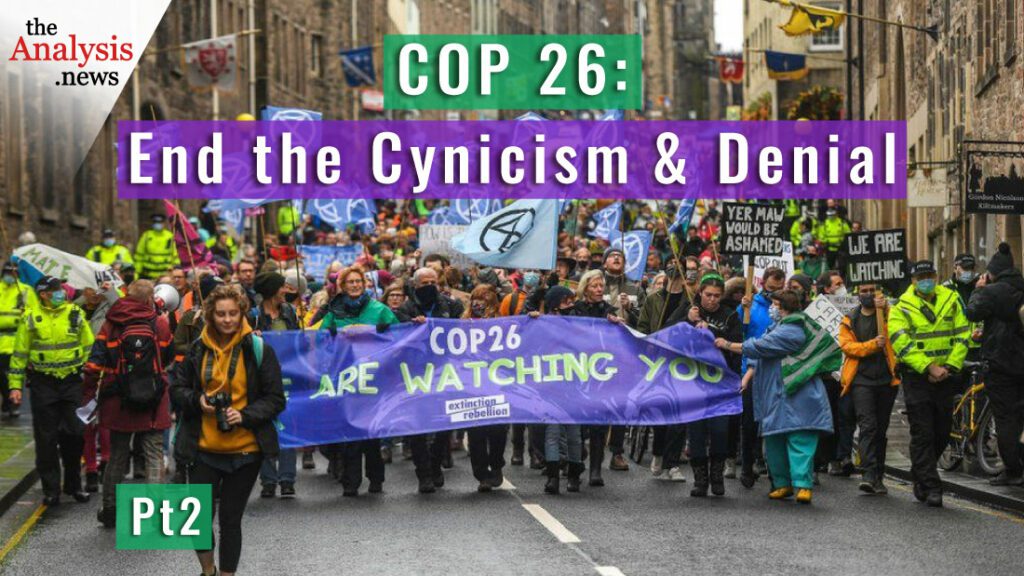
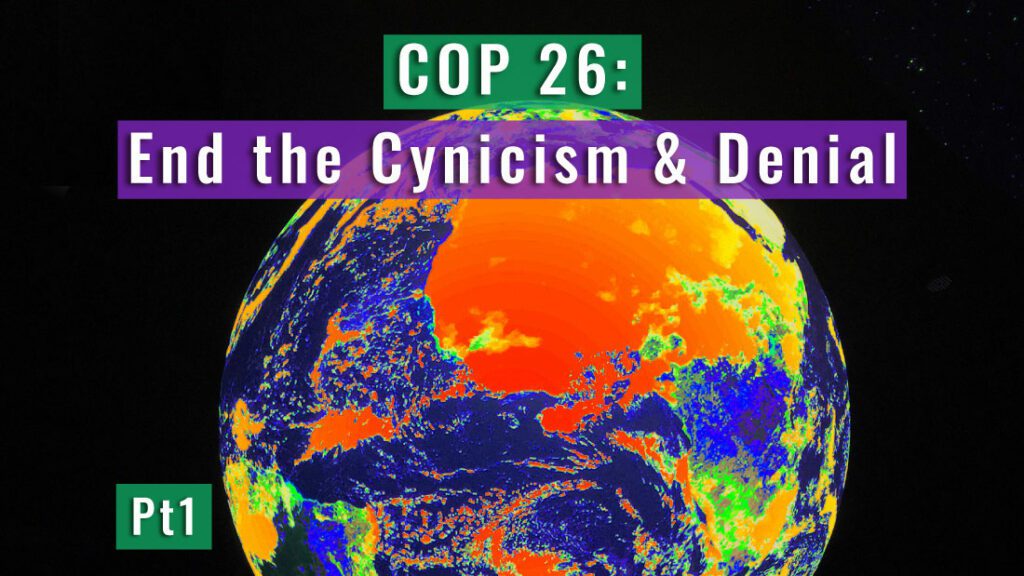



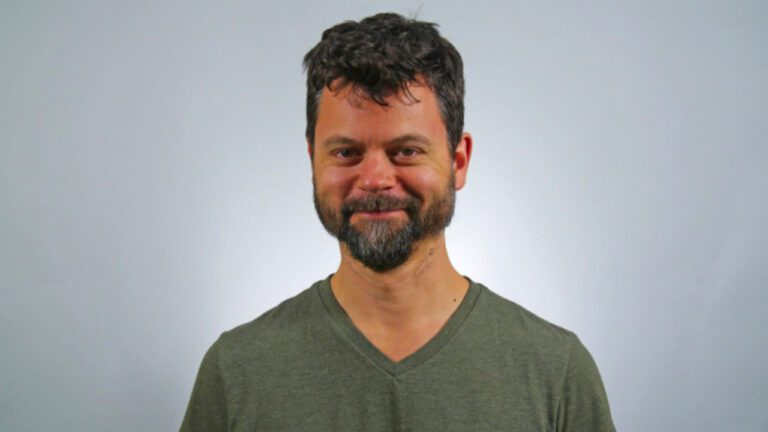
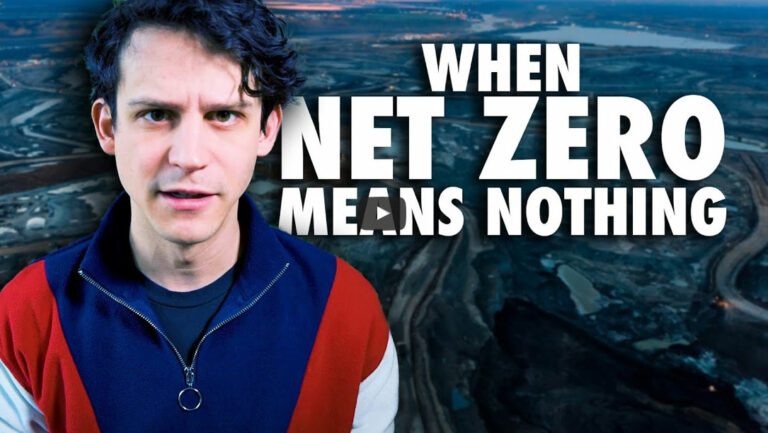

1.5% C02 vs. 2.0% is just like Joe Biden/Kamala Harris’s promise of $2000 checks, the difference is you’ll find there is no 1.5% check in the mail much later, a perfect con which provides cover for all kinds of spending to enrich donors. 350.org is one of those corrupt actors looking to benefit from the crisis, talking a good game while setting up shop with corporatist donors.